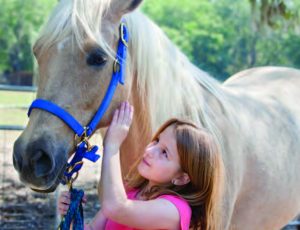The more summer camps change, the more one critical thing stays the same.
By Rachel Rutledge
No industry is recession-proof. However, through good times and bad, summer camps have proved to be one of the country’s most enduring businesses. More than 10 million children in the United States will attend some kind of camp this summer, a number that includes both day-campers and sleep-away campers. The majority of camps are actually run by non-profit organizations. Roughly one-fifth of the nation’s 12,000 camps are for-profit businesses. More than half of U.S. camps are overnight camps. When every last penny is counted, the summer camp industry is estimated to generate more than $15 billion a year. Someone’s doing something right.
That “something” hasn’t changed in a long, long time. For the vast majority of kids, summer camp represents the first real step toward self-reliance and independence. One could argue that this step is more important than ever, given that we now find ourselves in an age of unprecedented over-parenting.
The job of a summer camp is to provide a safe and stimulating environment for children. In the old days, that often meant a squeaky bed, a leaky cabin, pimple-faced counselors, hiking, paddling, toasting marshmallows and providing a meal for mosquitos. In other words, the greatest time ever. Today, the goal is the same but the offerings are a bit more sophisticated.
ONE SIZE DOES NOT FIT ALL
If you are the parent of a “veteran” summer camper, then you already know what’s out there in terms of choices. If you have yet to go the summer camp route, prepare yourself to be overwhelmed. While there are many hundreds of long-established, traditional sleep-away camps (both for-profit and by non-profit religious and youth organizations), the most dynamic sector of this market is represented by camps that cater to a child’s talents and interests. Name a focus or specialty, and it’s a stone-cold guarantee that a Google search will turn up pages of possibilities. Is your child a lacrosse prodigy? A budding zoologist? The next Steve Jobs? The next J.J. Abrams?The next Gordon Gecko? Matching a young person with his or her passion has never been easier.
To the old leaky-cabin camper, this might seem like overkill. And perhaps it is. But that’s missing the point of the summer camp experience, which is putting your children in a place where they can be themselves for the first time.
Read that again and understand it because, whether it’s for a day, a week, a month or more, it is the #1 reason why you send your child to camp. And it always has been. When children are free of parental oversight, the prism through which they experience new things and interact with new people is different and genuine. They become socialized by their peers, not by mom and dad.
Many camps tout character-development as one of their main selling points. Looking past the marketing pitch, there is a lot of truth to this assertion. Character isn’t based on what you do when your parents are watching; it’s what you do when they’re not watching. Also, part of building character involves teamwork and leadership, which are baked into just about every camp experience.

www.istockphoto.com
PICKING A CAMP
With so many types, styles, locations and durations to choose from, the best way to find a good fit for your children is to identify camps that offer lots of activities based on their skills and interests. That means their interests, not yours. If you went to a traditional summer camp as a child, be aware that there is a natural tendency to be seduced by camps that you wish had existed 25 years ago. Your child isn’t you. You may be a 007 fanatic, but if your child is a soccer player, two weeks at Secret Agent Camp is probably a horrible idea (and vice versa).
A couple more rookie mistakes to avoid are sending your child to the exact same camp you attended 30 years ago, and also sending your child to the same camp as an older sibling. Yes, we all know that girls-only poetry camp you went to back in the ’80s changed your life. However, your daughter may want to learn to build virtual reality programs this July. Iambic pentameter may not be her thing. And just because your older son improved his vertical leap by 6 inches at basketball camp, it doesn’t mean his younger brother needs to become Scottie Pippen to his Michael Jordan.
Whatever experience you choose for your child, make sure to involve them as much as possible in the decision. Day camps can be time-consuming for a family and sleep-away camps financially challenging. Both can be emotionally stressful if you end up second-guessing your decision. But if everyone is on the same page, your first choice is likely to be the correct one.

www.istockphoto.com
SEPARATION ANXIETY
For families that have yet to embrace the sleep-away experience, long-term separation and the anxiety or homesickness that can result should be part of planning an extended summer camp stay. Even if your child loves blowing you off at every opportunity, that may not be the case on drop-off day with the prospect of limited contact for the next 2 or 4 or 6 weeks. Expect some tears; if not theirs, then yours (see KIDSICK? on page 71). Interestingly, separation anxiety actually refers to a disorder where individuals suffer excessive fear or distress when they are removed from people (and sometimes places) with whom they have a strong emotional attachment. Mostly it applies to children under the age of 4, and is part of the development process. But it can occur in older kids, as well as adults.
In camp-age children, some degree of separation anxiety is normal during the first day or two away. Clinically speaking, it must persist for at least 4 weeks before it is considered an actual disorder. Unfortunately, that’s the duration of many camp sessions! For the small percentage of campers who do have this problem, it’s no fun. They can experience intense anxiety and suffer panic attacks. They might also complain of medical issues, such as persistent stomach pain or headaches. Rarely, however, does true separation anxiety suddenly emerge at camp. Typically, parents of children with separation anxiety are aware of the condition long before summer camps are even discussed, which means sleep-away camps are not a viable option.
Needless to say, all types of camps—from sports camps to military camps to science camps to language camps—are not only good at dealing with mild bouts of separation anxiety, but tend to be experts with the specific type of kids and families that sign up. Truth be told, in the vast majority of cases, the recipe for success is identical: 20 minutes after mixing with the other campers, kids start looking forward, not back, and aside from an occasional pang of homesickness they are good to go for the day, the week, the month or more.
Should you suspect that you are the parent of an anxious camper, the one thing to avoid in the months prior to drop-off day is discussing how worried you are that the child will be lonely or homesick. Sharing your concerns is not making things better, and will almost certainly make things worse. Also, remember that kids aren’t stupid. If you constantly tell them how much fun they are going to have, and how they won’t miss home for a minute, they’ll know something is up. The same goes for constantly saying how much you’ll miss them for the time they are away.

www.istockphoto.com
TIMING IS EVERYTHING
We’ve all heard the stories about Type-A parents signing their kids up for private Pre-K when they’re still in the womb. Well, securing a spot for your child in your first-choice camp isn’t quite that bad, but if you are reading this story and the first day of spring is approaching, then the clock is ticking. In particular, traditional sleep-away camps tend to fill up quickly, as many families renew year after year. The more specialized sleep-away camps don’t get the same volume of repeat business, but open slots at the ones that market aggressively and are well-reviewed tend to disappear around this time of year.
A significant number of “resident” camps—sleep-away camps that like to make use of boarding school or college dorms—are built around one-week programs in sports, technology or creative and language arts. It is possible to program an entire summer of these short-duration camp stays for your child, usually with alternating weeks home and away. It’s a bit of a Rubik’s Cube to schedule (and not inexpensive) but from an enrichment standpoint it might be just what the doctor ordered, especially if you can’t find a 4- or 6-week camp that works for you.
Finally, don’t ignore day-camp opportunities that may exist close to home. Many of New Jersey’s private schools open their classrooms, gyms and playing fields to specialty camps during the summer as a way of generating extra income. Often, their best teachers (or coaches) either run or teach specific programs, so for the modest price of a day camp your child is exposed to high-powered educators doing what they love.
KIDSICK?
Kidsickness may not be a real word, but it’s a real thing. Many are the moms who tumble into rudderless melancholy triggered by the temporary absence of their children. Grown men have been known to burst into tears the first time they wave goodbye to their young campers. That’s perfectly fine. Nothing to be embarrassed about. Just keep it to yourself. A hug, a kiss and a quick exit at drop-off make for an ideal send- off. Don’t freak out your kid.
That being said, a certain percentage of parents really do find themselves suddenly and quite unexpectedly depressed and panicked—while their children are off having the time of their lives. According to the American Psychological Association, if you find yourself worried to the point of distraction while your child is off having fun in the woods somewhere, a session or two with a psychologist is a perfectly appropriate way to navigate your way through this new challenge. If parental anxiety is a simple matter of not knowing what a child is doing, or fretting obsessively about their safety, or that they’re not having enough fun, then parents should do themselves a favor and pick a camp that posts photos every day.
Editor’s Note: Each year in its first issue, EDGE writes about a different aspect of the summer camp experience. Log onto edgemagonline.com, click on the FAMILY tab and scroll backwards to find stories such as “Great…Outdoors” and “Extreme Summer.”





